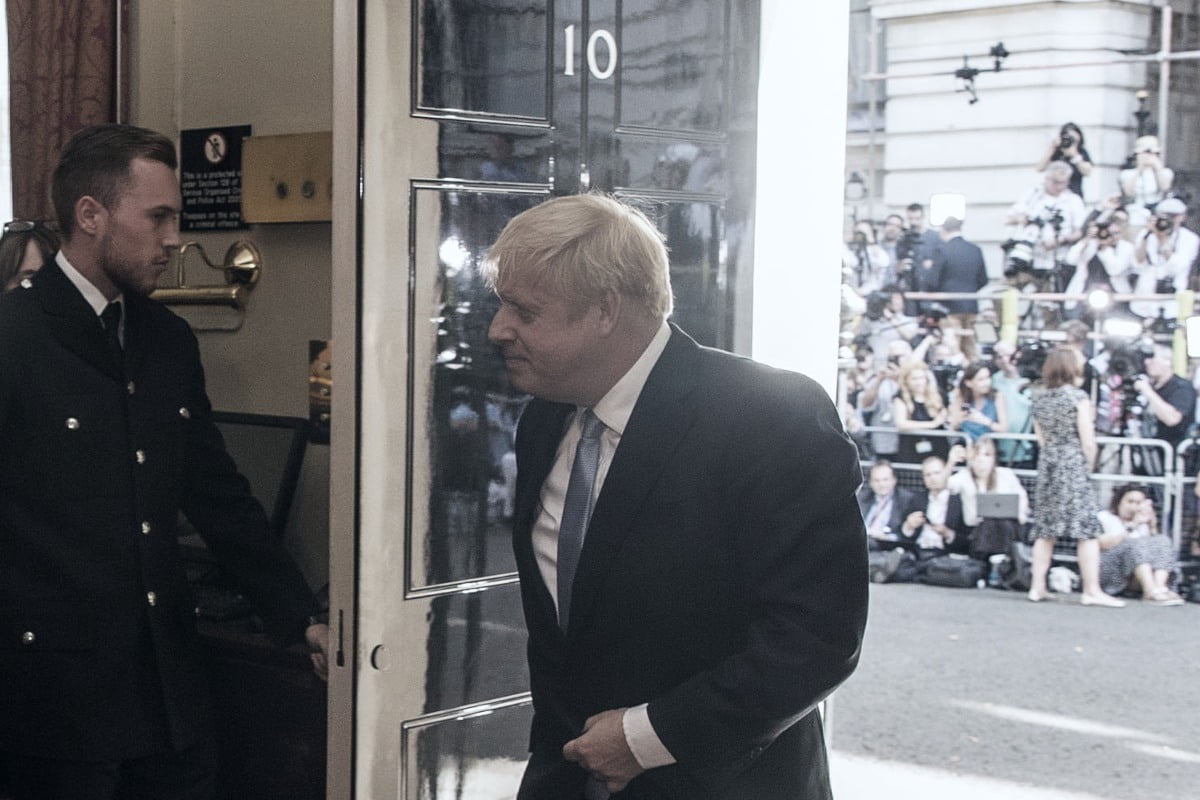- Joined
- Jun 28, 2002
- Messages
- 11,153
- Reaction score
- 10,145
- Points
- 143
Off the top of my small heid, factually, I have watched day by day over the past 4 years, daily attacks, smears and bastard lies from the billionaire press, Sun, Daily Mail ,Express,Telegraph, free give away Evening Standard, Tory endorsing rag owned by Russian businessmen , ex KGB , billionaire, oligarch, Alexander Yevgenievich Lebedev, and edited by George Osbourne gettting his £700,000 from him and £650,000 for 1, yes 1 days works for Blackrock,the world's largest fund manager.
The media, including the crappy BBC and Sky News, attacked the man and his party unrerelentously. This cannae effect certain folk, dinnae be daft.
IRA supporter, false, used by the gutter press and by the anti working class clowns, supporter of Middle Eastern terrorists,false.
In the bastard Sun I remember decades ago attacking Tony Benn when he was going for Labour Party leadership with a grotesque cartoon of him, with Veggie Benn as headline .Fuck me that was decades ago. History repeats.
The gutter mob obviously would write shite to try to influence workers .
The splendid Ewan MacCall RIP. Kent the score during the biggest State intervention to crush the Miners from Scotland to Kent. I guess many youngsters on here have not a ingling what solidarity means. I thank god till my dying day I will do.
The attacks have started. Blairite fuckallsters out in force enabled by the media, all the shite mentioned above.
Yesterday Blairite , Alan Johnson, BBC paid stooge with Portillio on the crappy pastiche of real politic.
What do these Blairites want. I know what the fuckers want, a return to Blairism.
Yesterday on crappy Morning BBC thang, Labour Blairites Steven Kinnock and Alilison McGovern were given free resign to attack Corbyn. Both were leaders of the Chicken Coup to get rid of him. Both appeared on Channel 4 news 12 hours latter. Kinnock had selective amnesia of his own father losing 2 Elections. Oh well doesnae matter
The right wing Media want a return to a compliant Labour Party a la Blair. No way as long as I breath.
From what I remember myself and Gareth were opposed to another Referendum. Which cost Labour dearly.
I have read both the splendid reads òn the Election threads. My good amigo Alan Woods like myself a Marxist in the Labour Party, though a million times better at analysing the reality of the here and now.
Watch, analyise say fuck off , but say anything which is important to you imo.

 www.socialist.net
www.socialist.net
BIG G
The media, including the crappy BBC and Sky News, attacked the man and his party unrerelentously. This cannae effect certain folk, dinnae be daft.
IRA supporter, false, used by the gutter press and by the anti working class clowns, supporter of Middle Eastern terrorists,false.
In the bastard Sun I remember decades ago attacking Tony Benn when he was going for Labour Party leadership with a grotesque cartoon of him, with Veggie Benn as headline .Fuck me that was decades ago. History repeats.
The gutter mob obviously would write shite to try to influence workers .
The splendid Ewan MacCall RIP. Kent the score during the biggest State intervention to crush the Miners from Scotland to Kent. I guess many youngsters on here have not a ingling what solidarity means. I thank god till my dying day I will do.
The attacks have started. Blairite fuckallsters out in force enabled by the media, all the shite mentioned above.
Yesterday Blairite , Alan Johnson, BBC paid stooge with Portillio on the crappy pastiche of real politic.
What do these Blairites want. I know what the fuckers want, a return to Blairism.
Yesterday on crappy Morning BBC thang, Labour Blairites Steven Kinnock and Alilison McGovern were given free resign to attack Corbyn. Both were leaders of the Chicken Coup to get rid of him. Both appeared on Channel 4 news 12 hours latter. Kinnock had selective amnesia of his own father losing 2 Elections. Oh well doesnae matter
The right wing Media want a return to a compliant Labour Party a la Blair. No way as long as I breath.
From what I remember myself and Gareth were opposed to another Referendum. Which cost Labour dearly.
I have read both the splendid reads òn the Election threads. My good amigo Alan Woods like myself a Marxist in the Labour Party, though a million times better at analysing the reality of the here and now.
Watch, analyise say fuck off , but say anything which is important to you imo.

After the election defeat: The fight continues | Socialist Appeal
Since last week's election defeat, the right wing and media have launched a huge offensive against Corbyn and the left. But it is the Blairites and their sabotage that is to blame. We must fight to purge the party of these elements.
BIG G



